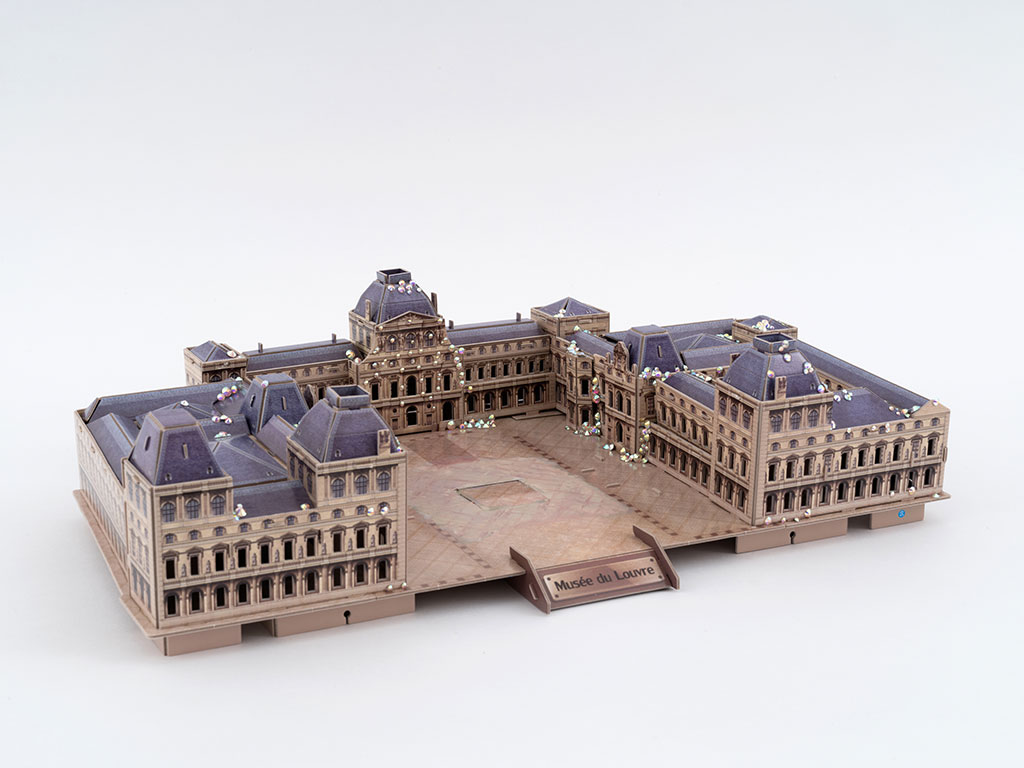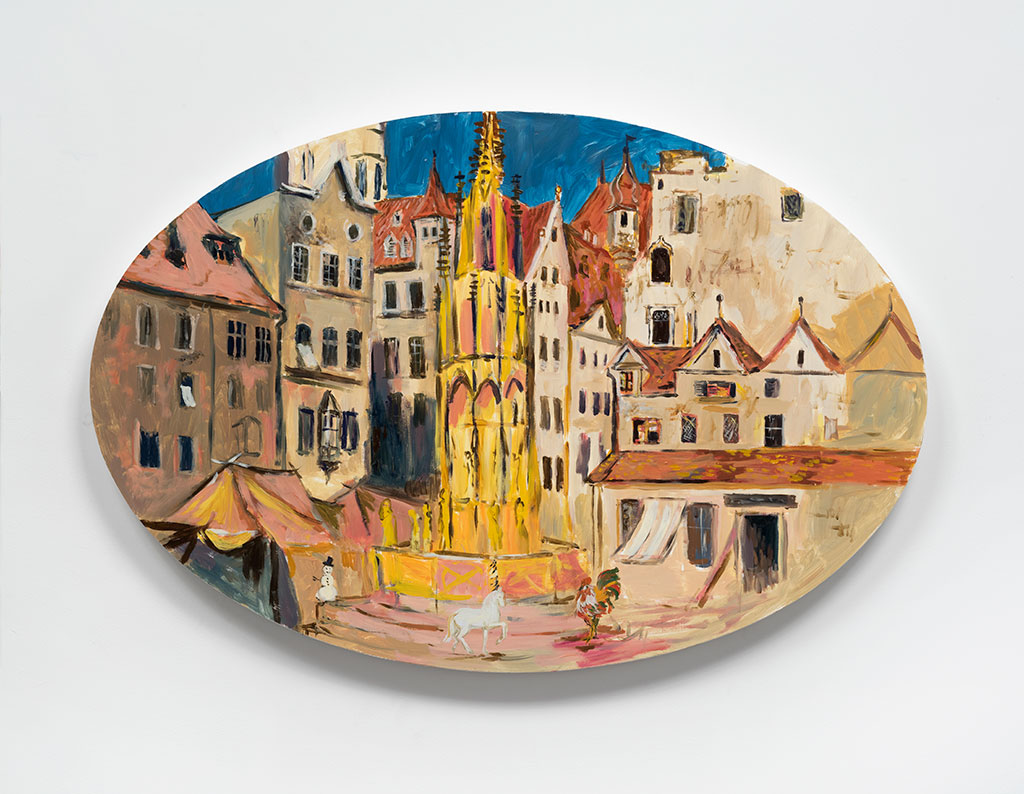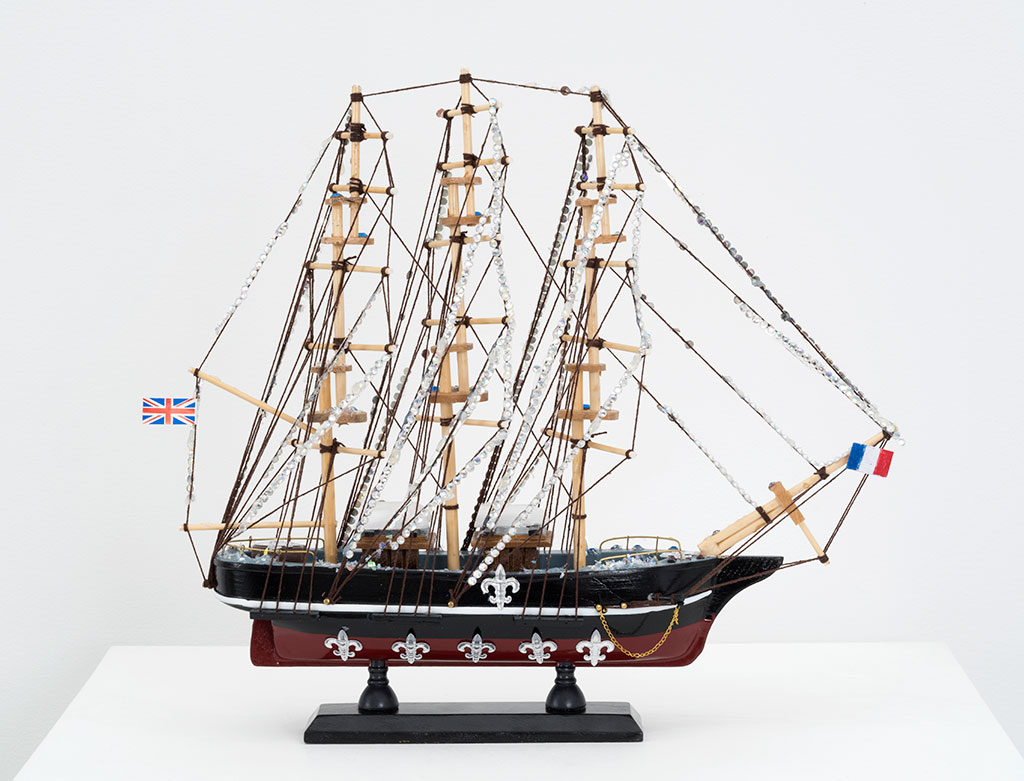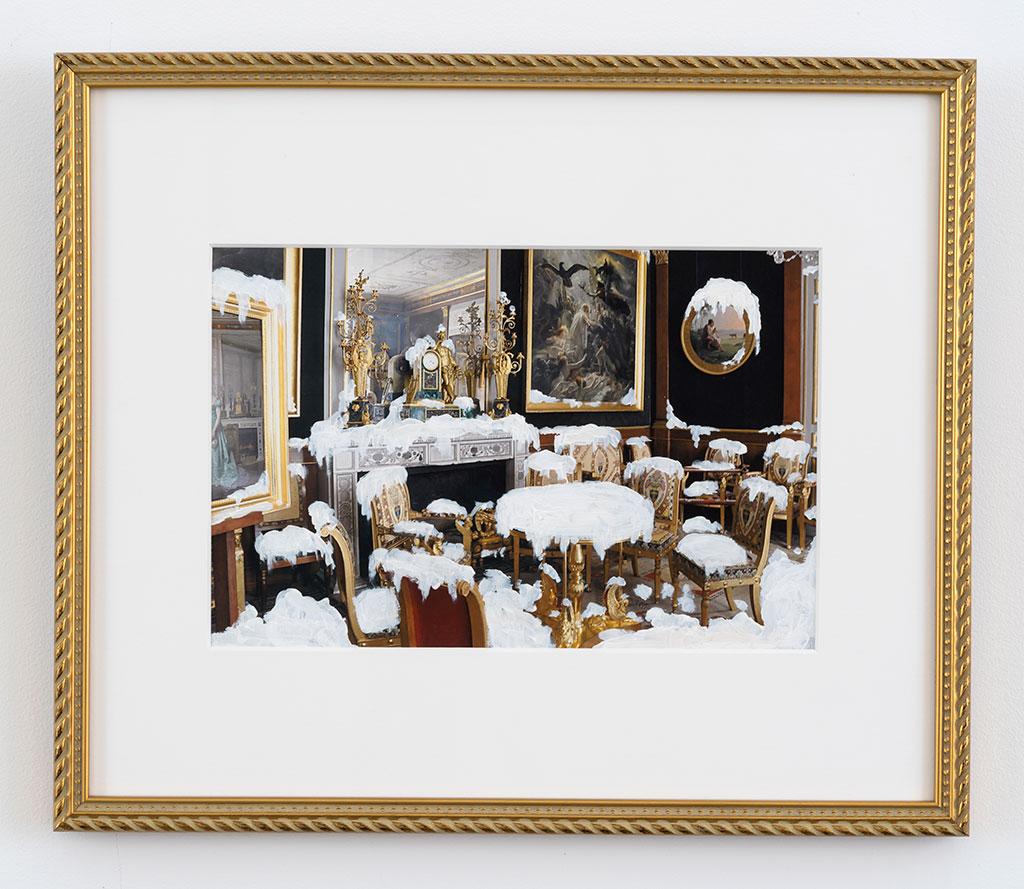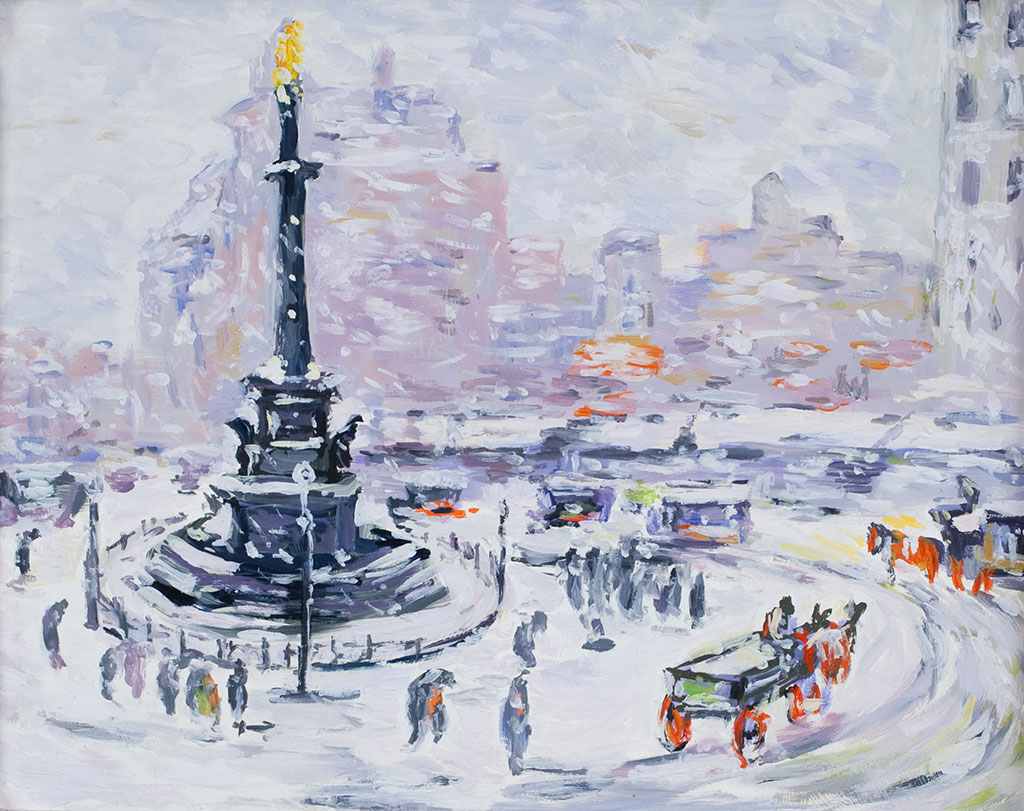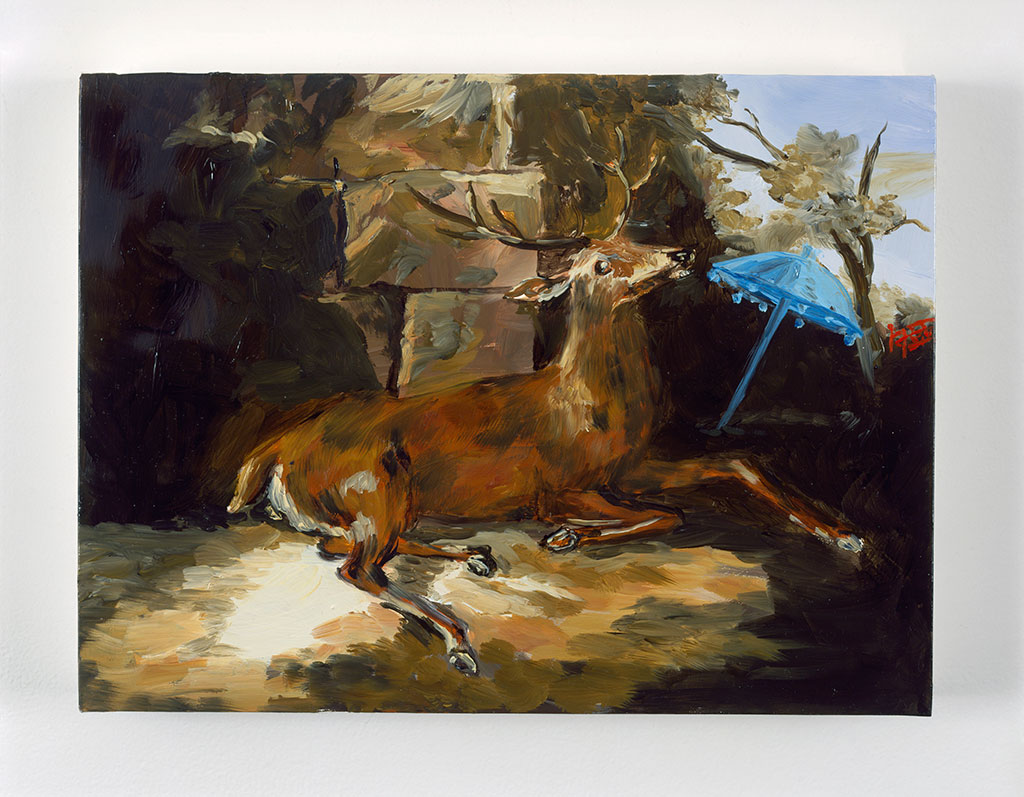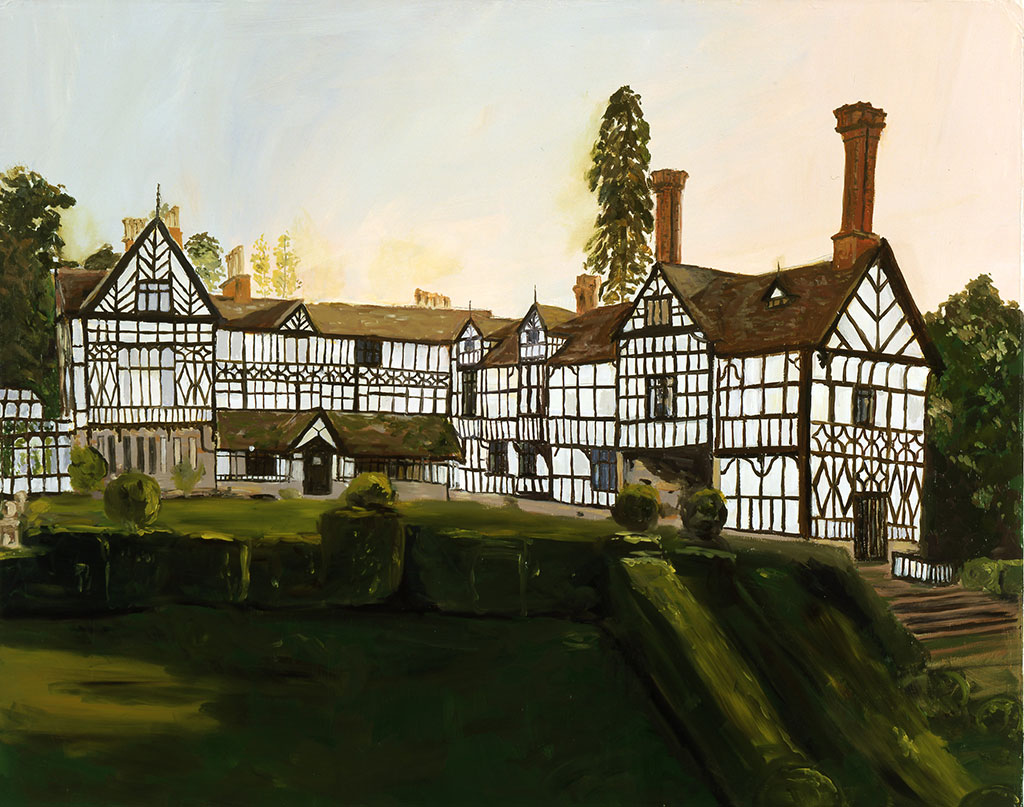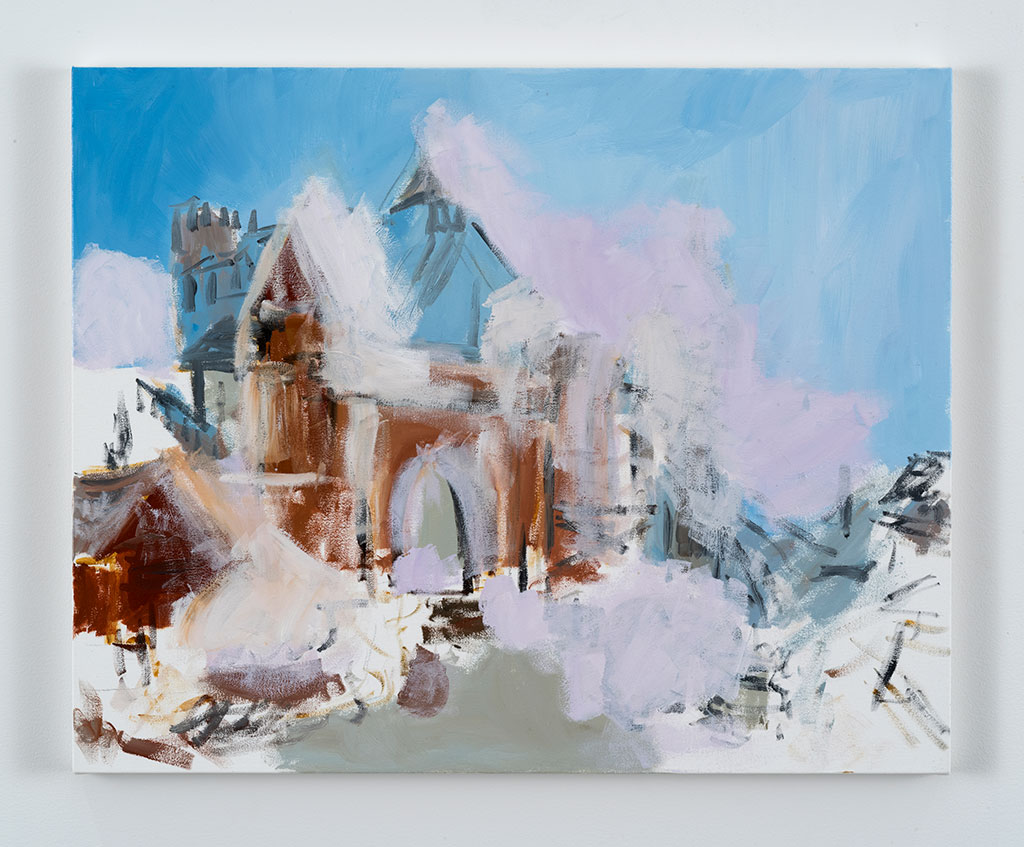ART-TRIBUTE:Karen Kilimnik-Christmas Service for the Forest Pets, Part II
 A major focus for Karen Kilimnik is the blending of real and imagined portraiture. In her iconic paintings, modern pop-cultural icons are inserted into composed historical overtures, resulting in an enchanted kind of unreality. Kilimnik traffics in the creation of reciprocal allegories, whereby the malleable personas of her actors are subjected to perpetually reversing roles (Part I).
A major focus for Karen Kilimnik is the blending of real and imagined portraiture. In her iconic paintings, modern pop-cultural icons are inserted into composed historical overtures, resulting in an enchanted kind of unreality. Kilimnik traffics in the creation of reciprocal allegories, whereby the malleable personas of her actors are subjected to perpetually reversing roles (Part I).
By Efi Michalarou
Photo: South Etna Montauk Archive
Karen Kilimnik draws parallel references between historic works from the 16th century and contemporary consumer culture. She unearths romantic traditions, creating imaginative paintings, drawings, photographs and installations that span interests as diverse as animals, childhood, ballet, fashion, witchcraft, famous films, literature, landscape and dreams. Kilimnik’s work is known for its whimsical approach. However, this approach is mixed with sharp and relevant themes including feminism, psychology and identity. Karen Kilimnik’s solo exhibition “Christmas Service for the Forest Pets” borrows its title from a signature painting by the artist and surveys her 30-year career through a festive seasonal lens. Paintings, photographs, and sculptures made between 1999 and 2020 are presented in a “winter wonderland”—a total environment conceived and installed by the artist herself. The exhibition’s mise-en-scène evokes the merry trappings and artifice of the holiday season, heightening the theatrical narrative fantasies inherent in Kilimnik’s work. The faux-Tudor style of the cottage that houses the gallery recalls the imaginary European scenes that Karen Kilimnik has visualized over the years. Inspired by this aesthetic kismet (fate-destiny) , she has created a site-specific installation project for the build-ing’s exterior windows. Peering through frosted glass panes illuminated by holiday lights, visitors will discover Kilimnik’s recent bejeweled sculpture of the Louvre museum as well as the exhibition’s titular work, a painting from 2008 of baby woodland creatures huddled in the snow around a fir tree and a shining cross. Once inside the gallery, visitors will encounter a wintry tableau teeming with the signature themes of Kilimnik’s practice. Known for her immersive installations, she is here conjuring the interiors of a European manor as envisioned by the designers of sets for made-for-TV movies. Kilimnik’s crystal chandelier sculpture glimmers above piles of fake snow, reflecting a glow upon sumptuously colored walls and a fireplace mantle, around which the artist’s winter-themed paintings and photographs are arranged. With this installation, Kilimnik aims to transport viewers from present-day Montauk to remote locales in her artistic time machine.
Karen Kilimnik’s early work from the late 1980s and early 1990s are complex mise-en scènes that extend from the wall to the floor. Usually consisting of artifacts strewn amidst the gallery with seeming carelessness, painted backdrops and scribbled allusions to a narrative, they are often born of a certain fandom or interest in celebrity culture that is evident across her practice. Specific episodes of cult British television programs were the impetus for a number of these installations and in “Paris Is burning” (1991) or “Is Paris burning? (1944)” (1992), Kilimnik merges the documentary about New York drag sororities with a Hollywood movie about the pending destruction of occupied Paris. Seemingly incongruous moments and events are rolled into one through the use of props within a stage set, historical fact presented as theatre. The artist also became one of the main proponents of the resurgence of figurative painting in the early 1990s, coming to prominence with portraits of figures both semi-fictional and real, derived from the worlds of music, film, fashion and royalty and aristocracy. Figures from the present are dragged into historical overtures, becoming characters in scenarios that draw from disparate sources to form veiled critiques of conventional concepts of beauty, romanticism and glamor. “My Sister and Me – by Sir Thomas Lawrence” (1986) imagines the artist as a Baroque painting from a Met Museum postcard of the aforementioned British portraits of the eighteenth century, executed with similar blushing cheeks and unfurling fabrics, with “The goddess Artemis’s afternoon snack, Moreton-on-marsh, the cotswolds” (2009) placing a charming picnic for the Greek goddess in the artist’s beloved English countryside. Despite what appears as a childlike obsessiveness with her subjects, Kilimnik is primarily interested in their personalities rather than their public-facing personas. The worlds she creates simultaneously draw from major events, a recurring series for example of maps that color in the boundaries of shifting territories across war in the twentieth century, to more general themes such as English country houses, Delftware or fairies. Often her paintings and drawings come to inhabit carefully produced stage sets, theatrical environments that viewers can experience as though part of the artist’s self-contained worlds, that bear a similarity to early installations. “The Forest in La Bayadère” (2003-20) recreates an enchanted forest from the Russian ballet, replete with music and even a toy owl, offering an environment for her paintings on ballet.
Photo: Karen Kilimnik, the royal Swedish forest, 2018, Signed, titled, and dated (on verso), Water soluble oil color on canvas, 14 x 18 in. (35.6 x 45.7 cm), Courtesy of the artist, 303 Gallery, New York and South Etna Montauk
Info: Curator: Alison M. Gingeras, South Etna Montauk, 6 South Etna Avenue, Montauk, NY, Duration: 20/11/2020-10/1/2021, Days & Hours: Fri-sun 11:00-18:00, www.southetnamontauk.com
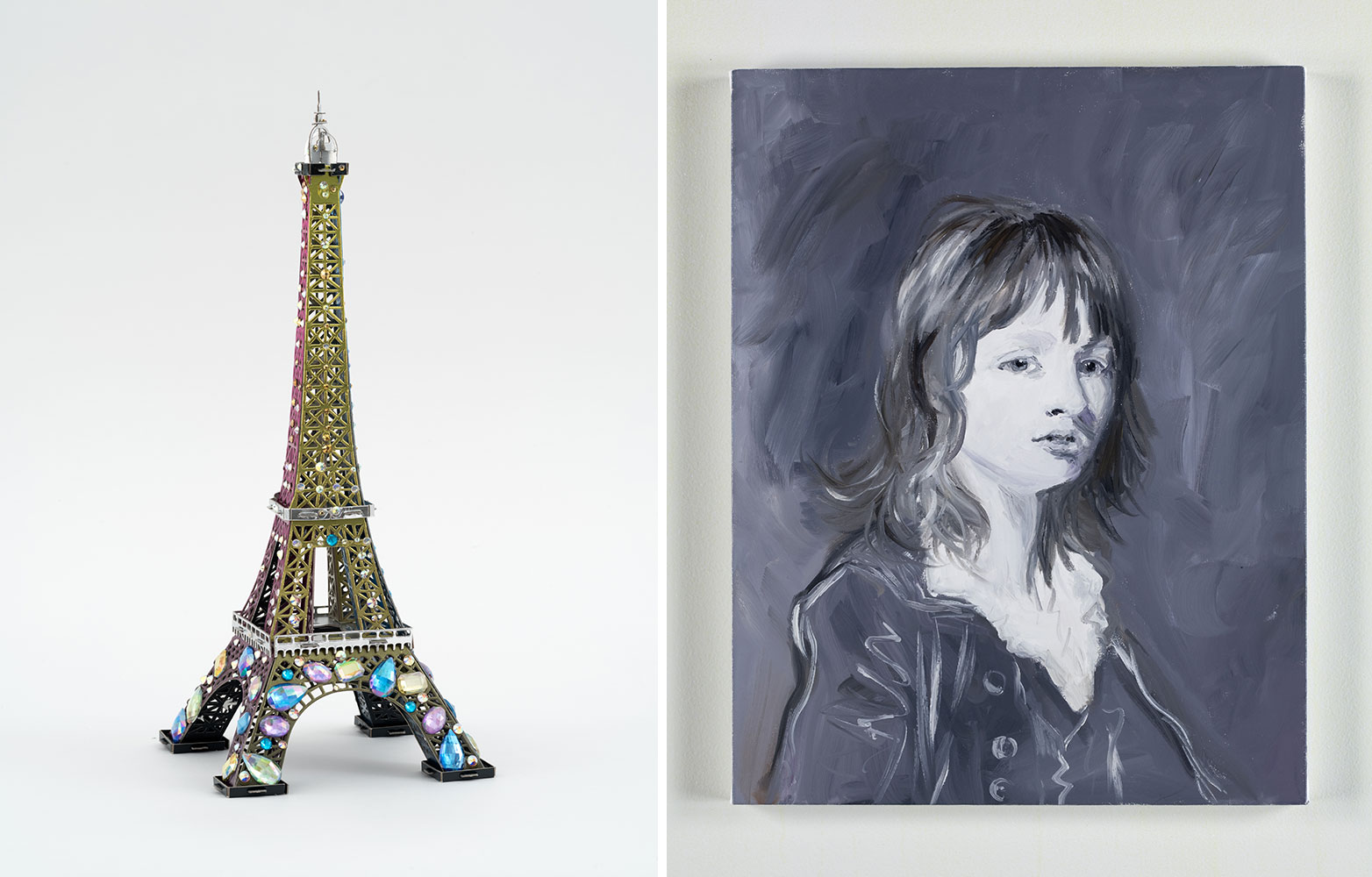
Right: Karen Kilimnik, the Ragamuffin of Kiddington hall, 2011, Signed (on verso) Water soluble oil color on canvas, 18 x 14 in. (45.7 x 35.6 cm), Courtesy of the artist, 303 Gallery, New York and South Etna Montauk
